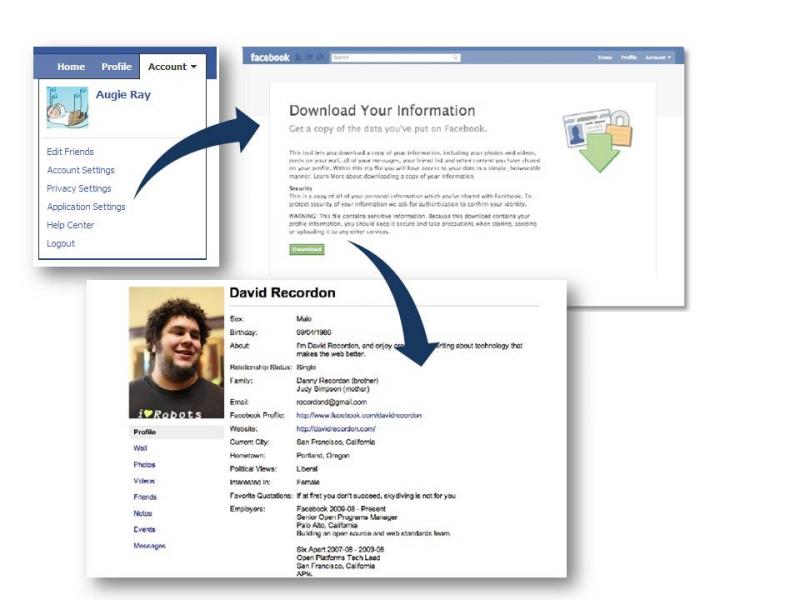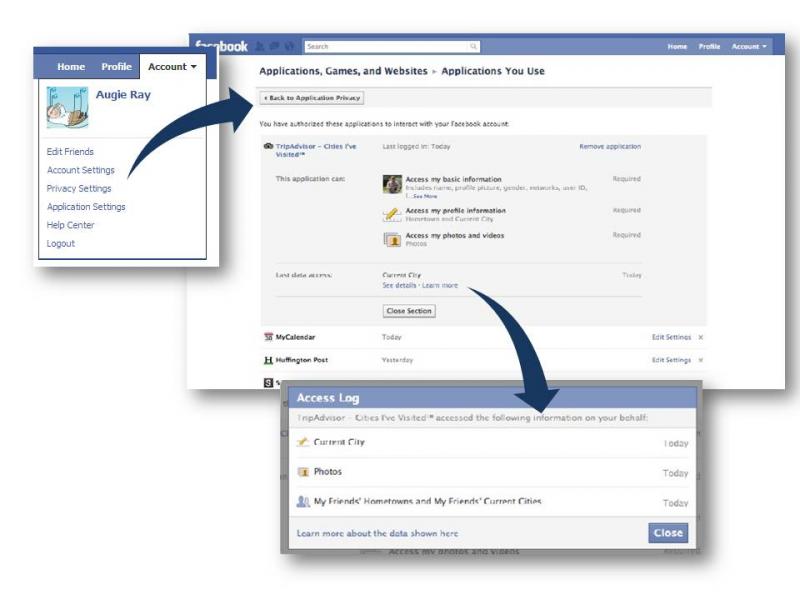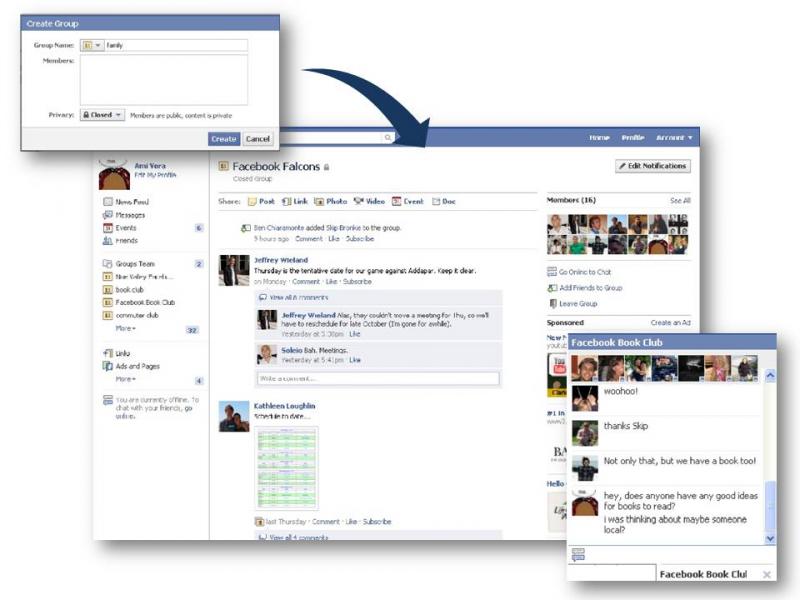Welcome To The New Facebook: What Facebook’s New Features Mean
Welcome to the new Facebook. No, I don't mean Facebook the social network, although today's changes do represent some exciting new capabilities for Facebook users. Instead, I mean Facebook the company. The organization that today announced new features seems a different Facebook than the one we’ve seen in the past. Today’s Facebook is one committed to transparency and user control and mindful of its increasingly vital and high-profile position within people's communications and lives.
By now you may have heard of (or seen) the new features Facebook announced at its press event this morning. Here is a brief summary:
- Download Your Info: You can download a copy of everything you’ve ever posted to Facebook. Go to “Account: Account Settings” in the upper right hand corner of your Facebook page to access this new feature. As an extra security measure, you will be asked to authenticate yourself before downloading your data as a ZIP file. This file will contain your posts, pictures, list of friends, events, notes and more (see Figure 1).
- Applications You Use: To date, once you allowed a third-party application to access your Facebook data, you had no ability to see what personal data was transferred and had few options to manage the application permissions. Facebook is now offering greater transparency and control over this data sharing. Go to “Account: Privacy” in the upper right hand corner of your Facebook page, then click “edit settings” to review the applications you have authorized. You can see the data each application has accessed; if you are unhappy with the amount of personal information provided, you may easily remove optional permissions for an application or deauthorize it completely from accessing your data (see Figure 2).
- Facebook Groups: The biggest and most evident change coming to Facebook is new and powerful Group capabilities. Rather than blast every thought to every Facebook friend, Groups will permit you to better control the people with whom you share. Any member can invite new members to join the Group, and every member is informed as new members are added. Each Group creates a separate space or community inside Facebook, and by default, all the content shared within a Group is available only to its members. Not only can you post updates to a smaller group (such as your schoolmates, friends, family, work associates or cricket team), but you may also chat live with the entire group, share photos, schedule events and send group email messages (see Figure 3).
That is how Facebook is changing, but what do these changes mean? I interpret today’s announcements to signify that:
- Facebook will continue to grow. Those of us in the social media world can sometimes forget that most people are more private and not inclined to share every thought with every friend. For those folks who value privacy a bit more, the new Groups functionality is likely to increase confidence, comfort and engagement. Now mom can share information with her close family members and not worry about what her nosy coworker sees.
- Facebook will retain kids (but will likely upset parents). There’s been a lot of buzz over the last year about how mom and dad’s arrival on Facebook is making the social network less cool and usable for kids. The new groups functionality will—for better or worse—allow kids to do what kids do: Share lots of information with each other while keeping their parents in the dark. Parents who joined Facebook to keep an eye on their children’s social media activities will have no ability to see what they are doing or sharing in “closed” or “secret” groups. Parents and teachers must continue to educate children on the risk and implications of social sharing.
- Facebook is listening and understands privacy concerns. The Facebook that announced Facebook Places and Groups seems a more seasoned and trustworthy organization than the Facebook that announced Beacon and Instant Personalization. Gone is the talk (or implication) that privacy is no longer a social norm, and instead we now see a company that recognizes it cannot afford to push the envelope too far. Some may and will quibble about certain default settings, such as that new Groups are “closed” by default (meaning that outsiders can see a list of members but not content) rather than “secret” (which means Group content, name and members are invisible to outsiders). But the quibbles are just that—quibbles, rather than major privacy alarms such as those Facebook created in the past. Facebook is no longer deploying each new feature with the assumption users want to share everything with everyone, and in fact all three of today’s announcements do the opposite—they create the means to limit and control one’s social sharing.
- Facebook has a vision. While Twitter could sometimes seem a visionary organization on a mission to make the world smaller and flatter, Facebook was often portrayed as an enterprise more interested in collecting and monetizing all of your data. Make no mistake, Facebook is in a position to earn a great deal of money off our interactions on the platform, but at today’s press event, Facebook conveyed something more than just a business model. Facebook CEO and president Mark Zuckerberg spoke with more passion and conviction than I’ve heard from him in the past as he outlined how problems cannot be solved by products or algorithms but instead by socializing the solution. Furthermore, Facebook executives spoke about how social design is a new discipline that is distinct, more difficult and more powerful than the sort of print, Web or interaction design of the past. Facebook isn’t just making it easier for people to share pictures and play farm games, nor is it done evolving; Facebook has a vision and is assertively working to improve the way we socialize, communicate and collaborate.
- Facebook is providing the means of empowerment, but only users can empower themselves. You can’t buy a car and ignore its upkeep. And on Facebook, you cannot endlessly friend people you don’t know well or authorize one application after another to access your personal data and ignore the implications to your privacy. No additional security can be gained if users do not utilize the tools that Facebook makes available. Facebook users who do not periodically monitor the applications they have authorized and the data those applications collect are no more responsible than the car owner who fails to check his or her oil level or tire pressure.
I shared what Facebook said today, but here’s what it didn’t say: Facebook isn’t setting defaults for openness, launching more monetization opportunities or making it easier for advertisers or third parties to leverage your data. Certainly the social network will launch new marketing products and face further privacy and reputation challenges in the future, but for today Facebook is content to give power to the people.
Figure One: Facebook Download Your Info

Figure Two: Facebook Applications You Use

Figure Three: Facebook Groups
